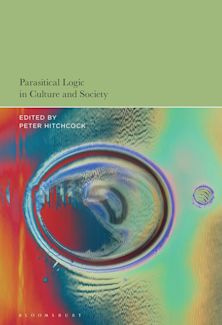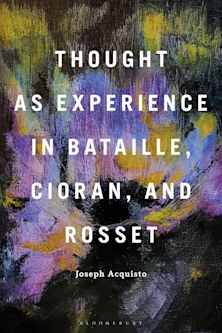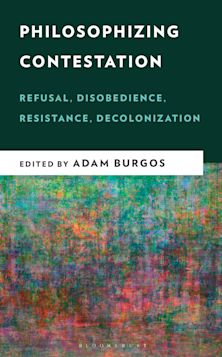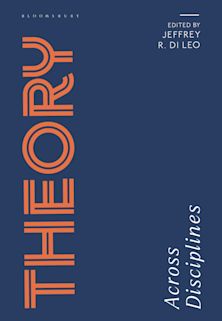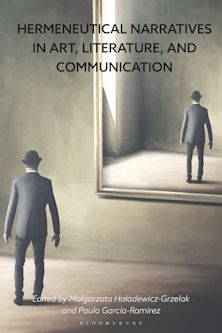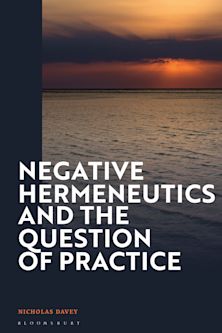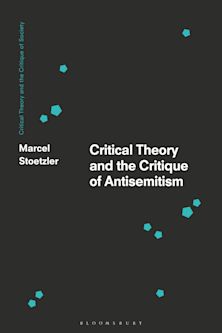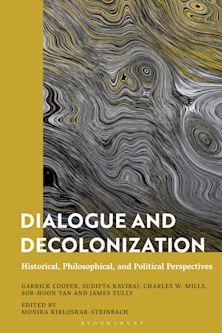- Home
- ACADEMIC
- Philosophy
- Critical Theory
- Creolizing Critical Theory
Creolizing Critical Theory
New Voices in Caribbean Philosophy
Creolizing Critical Theory
New Voices in Caribbean Philosophy
This product is usually dispatched within 2-4 weeks
- Delivery and returns info
-
Flat rate of $10.00 for shipping anywhere in Australia
You must sign in to add this item to your wishlist. Please sign in or create an account
Description
Creolizing Critical Theory highlights the Caribbean as a philosophical site from which, for centuries and until today, theorists have articulated pressing critiques of capitalism and colonialism. Some of these critiques, such as those of the Saramaka Maroons, have stressed the value of autonomy. Others, such as those of the West Indies Federation, have emphasized solidarity in the face of European occupation. Critical Theory, as an emancipatory project rooted in the values of autonomy, solidarity, and equality, then, has long been a Caribbean practice. Drawing on a range of voices, Creolizing Critical Theory centers Caribbean critiques with a view toward praxis in the present.
Table of Contents
Chapter 1: Sylvia Wynter’s’ Caribbean Critical Theory, Romy Opperman
Chapter 2: Creolization’s Newness, Jeta Mulaj
Chapter 3: The Promise of Manumission, Miguel Gualdrón Ramírez
Chapter 4: Against Ethnocratic Emancipations, Derefe Chevannes
Chapter 5: Creolization from Below, Ashley Boher
Chapter 6: Conserving Ethical Blackness, Gabriella Beckles-Raymond
Chapter 7: The Tricontinental Recollected, Eli Portella
Chapter 8: Strategic Anti-Essentialism, Rafael Vizcaíno
Afterword: Critical Theory Caribbeanized, Deborah A. Thomas
Index
About the Contributors
Product details
| Published | 08 Jan 2024 |
|---|---|
| Format | Hardback |
| Edition | 1st |
| Extent | 254 |
| ISBN | 9781538187999 |
| Imprint | Rowman & Littlefield |
| Dimensions | 237 x 159 mm |
| Series | Creolizing the Canon |
| Publisher | Bloomsbury Publishing |
About the contributors
Reviews
-
Creolizing Critical Theory inscribes at once the next iteration of the concept and a significant intervention that takes the concept to a new and unwonted place. Brilliantly edited by Kris Sealey and Benjamin Davis, this germinal collection of essays—with the Frankfurt School firmly in its sights, as well as the formidable canon of Continental philosophical texts that subtend it—opens the way to an astonishing idea: by methodologically focusing on Caribbean intellectual resources and its fertile thinkers, a creolized critical theory aims ‘to demonstrate the critical interventions from modes of thinking for which Black and Native death is not a side issue, but rather what is most urgent for critically re-imagining the category of the human.’ This powerful turn toward demarks another shift in the geography of reason, but it also lays claim to the rejected insight of a critical European blindness.
Hortense J. Spillers, Vanderbilt University
-
Critical theory is in constant need of self-transformation in light of the crises and struggles of its age, an age that is defined by the historical entwinement of capitalism and colonialism and its afterlives. Against this background, Creolizing Critical Theory offers a highly topical invitation to think with the Caribbean, with Caribbean thought as critical theory. Its chapters weave a rich and complex tapestry, containing a multitude of greatly relevant insights for all those who share critical theory’s ambition to address the deep crises of our present and to open up new ways of imagining the future.
Robin Celikates, University of Amsterdam, professor of philosophy, Freie Universität Berlin

ONLINE RESOURCES
Bloomsbury Collections
This book is available on Bloomsbury Collections where your library has access.












